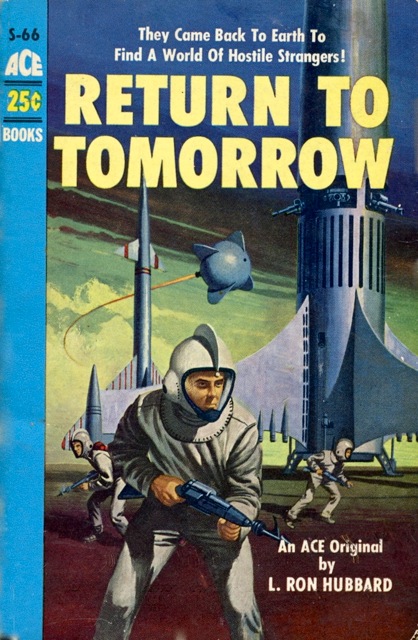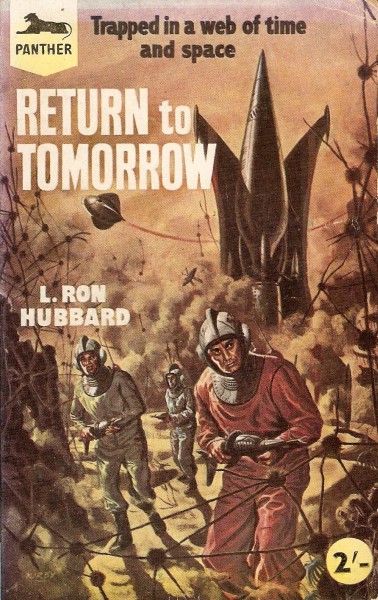
First appeared in John W. Campbell's Astounding. Was up for a Retro Hugo.
Somewhere far into our future, Alan Corday is in love. Despite being one of the few well educated and well bred tenth class in his day, Alan has no money to court her, so he is going to Mars to seeking his fortune. However, all that is changed when Alan has a black cat cross his path, hears piano music and steps into a packed bar that's otherwise strangely quiet, all listening intently to the music coming from the piano
In this short novel, Alan is taken on a long trip--that is, he's taken on a ship that has a distant destination. Can he get the crew to mutiny and take the ship back? Or should he just bide his time and hope his future wife is still waiting for him?
This is definitely a classic. According to the prefatory material, it was popular with readers at the time. It's easy to see why.
The story didn't kick in until the piano scene--page 9 out of 210, about 4% in--but otherwise, it rocked.
To compare the different titles is fascinating. Return to Tomorrow may be the more intriguing although I'm torn between which works better. It's fascinating that it underwent a transformation and returned to the original. Did the author return to his original? Or was one title forced on him?
The quote in my title is part of the opening line from the prologue, which actually says "Space is deep, Man is small and Time is his relentless enemy." As a reader and writer of poetry, I just loved the partial quote, which is perhaps too colloquial but also profound in its own way. While the prologue isn't bad and in places profound, I wonder if it hampered the tale from being more fondly remembered. After all, the story is the equal or near equal of the other works nominated.
I spent a good deal of time thinking about where it belonged in the pantheon of SF. I recently read The Time Machine by H.G. Wells, which is also known as classic (but perhaps not his best), and To the Stars hangs with Wells in scope and speculation in similar if different ways. It's true that Wells inspired what came after, but a number of space-travel-relativity stories have borrowed from this predecessor as well. Speaking of tributes, Hubbard has a tiny tribute to Tom Godwin's "The Cold Equations"--and there is a link, but perhaps more in theme than in plot.
Having recently read Frederik Pohl's best well remembered early classic, "The Tunnel Under the World," I find this hangs well with that. Arguments could be made about which is better.
Is it a must-read? I'll leave that for others to decide. Is it a classic that will repay your time? Absolutely. The reason it may not have been reprinted as heavily as some might be that it would consume half of most anthologies.
Some readers might object that women don't feature more prominently, but considering when it is written, they do play critical roles--some of whom tug at our heart although there is one I'd have liked to have seen her play a more prominent role as soon as it was clear what role she was playing although one might say the text let us imagine that role.
Highly recommended.



No comments:
Post a Comment